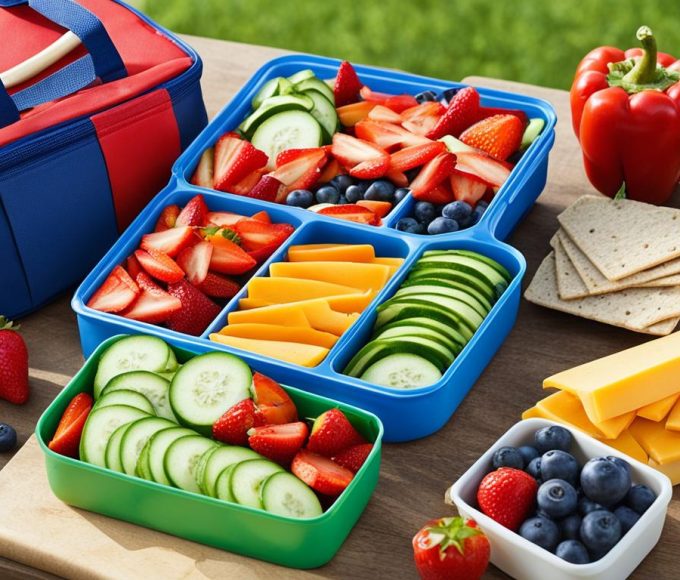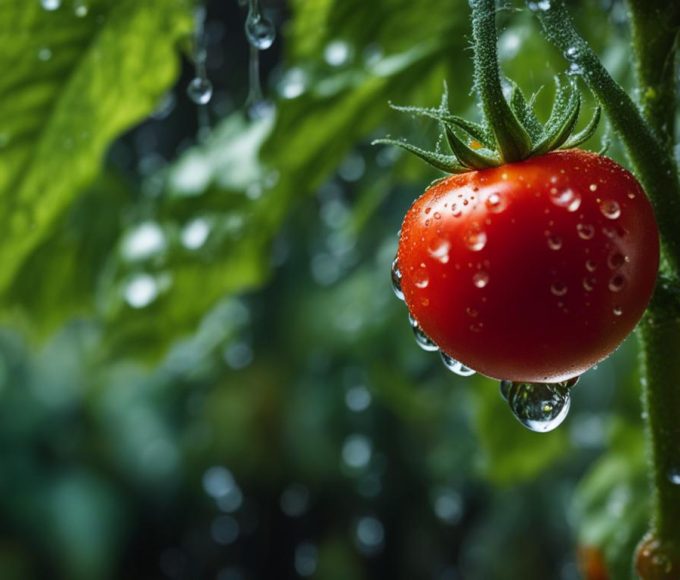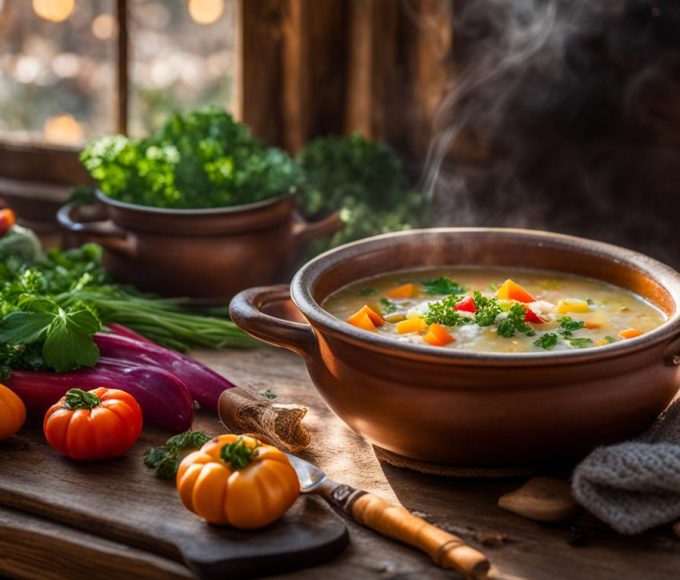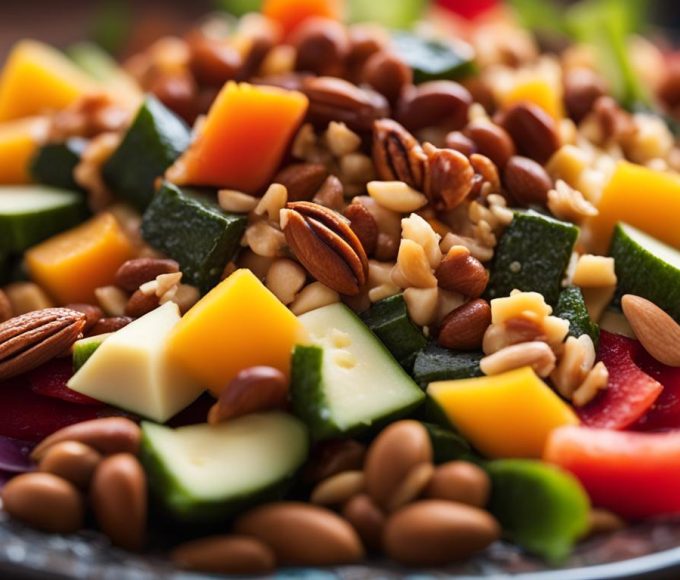Embark on a culinary expedition into the heart of French gastronomy! Should you aspire to emulate the iconic tastes of France within the confines of your kitchen, you’ve arrived at the perfect destination. This piece will uncover the marvels of French cookery and guide you through the process of mastering age-old French gastronomic skills.
French Gastronomy transcends mere recipe collections; it is a festivity of mouthwatering tastes, methodologies, and long-established gastronomic customs handed down the ancestry line. From sumptuous gravies to refined confections, French cookery spans an extensive assortment of plates sure to thrill your palate and astonish your dinner companions.
No matter your expertise in the home kitchen or if you’re embarking on your gastronomic voyage, French gastronomy holds treasures for all. Celebrated for its insistence on pristine, top-tier produce and meticulousness, French recipes are as gratifying to create as they are to relish.
In the unfolding paragraphs, we’ll delve into the narrative of French gastronomy in the American scene, probe the substance of the legendary work “Mastering the Art of French Cooking,” and reflect on the impact set forth by its release. Additionally, we’ll reveal the trials and triumphs Julia Child and her companions encountered in acquainting French cookery with an American demographic.
Should you be prepared to undertake the mastery of French gastronomy and amplify your cooking prowess, accompany us on this savory quest. Let’s divulge the mystique of emblematic French dishes and inflame your culinary spirit!
The Chronicles of French Gastronomy in America
Following World War II, American interest in French culinary arts soared, yet authentic French recipes and raw components were scarce. French culinary instructors Simone Beck and Louisette Bertholle, both educated at Le Cordon Bleu, partnered with Julia Child—a fellow alumna—to compile a definitive compendium on French gastronomy tailored for the American domestic chef. Their collaboration yielded “Mastering the Art of French Cooking,” accentuating precise directions, proportions, and genuineness. This publication revamped American techniques to French gastronomy.
The exclusive realm of fine dining was no longer the sole province for French gastronomy in America; it had become attainable to the typical home chef. The trio, Beck, Bertholle, and Child, aspired to demystify French culinary techniques and immerse American chefs in the profound gastronomic lore of France. Their cookbook functioned as a conduit between cultures, importing the savors and traditions of French cuisine into American households.
With its elaborate explanations and incremental guidance, “Mastering the Art of French Cooking” garnered instant acclaim, entrancing domestic chefs throughout America. This compendium brought techniques such as sautéing, stewing, and concoction of gravies—once esoteric to American kitchens—into common practice, invigorating readers to dabble with novel savors and navigate the vast expanse of French dishes.
The Significance of Mastering the Art of French Cooking in America
The advent of “Mastering the Art of French Cooking” not only equipped American chefs with an exhaustive syllabus on French gastronomy; it also wielded profound sway on the culinary fraternity at large. The chronicle set new benchmarks for the genre of cooking literature, heralding the necessity for precision in commands, proportions, and the use of bona fide French products and techniques.
The proliferation of French cooking traditions and methodologies garnered acceptance and esteem within American circles, molding their approach to food preparation and consumption. The triumph of “Mastering the Art of French Cooking” cultivated a fresh cohort of cooks and culinary enthusiasts, eager to delve into the profundity of French culinary traditions.
The Substance of Mastering the Art of French Cooking
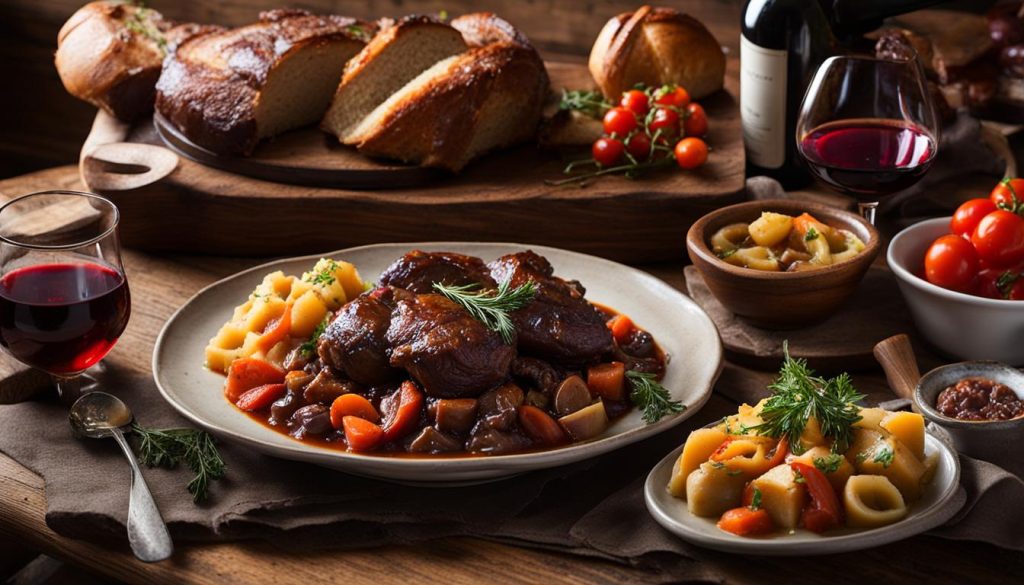
“Mastering the Art of French Cooking Volume 1” provides a thorough primer to the essentials of French gastronomy. It showcases in excess of 500 classic French recipes, capturing the essence of cherished plates like beef bourguignon, bouillabaisse, and cassoulet. This culinary manuscript does more than merely instruct on the crafting of these iconic French dishes; it also imparts key insights into the procurement and management of requisite edibles.
The successive installment, Volume 2, augments particular areas of study, chiefly elaborating on baking arts. Here, the tome ventures into the craft of French confections, baked goods, and sweet treats, serving up an increased compilation of recipes for home chefs to endeavor. Echoing Volume 1, Volume 2 is steadfast in its commitment to authenticity and rigorous detail, assuring readers the ability to reproduce France’s palate in their domestic cookery.
Centering on Genuine French Gastronomic Ingredients and Methodologies
The quintessence of French gastronomy is enshrined in the procurement of premier materials and the honing of time-honored cooking skills. “Mastering the Art of French Cooking” spotlights these critical factors within its pages. The culinary guide advocates for homemakers to search out definitive French ingredients like French butter, Dijon mustard, and Bordeaux wine, to fully encapsulate the French gastronomic spirit. Furthermore, it dissects various cooking methodologies, ranging from pan-frying and stewing to crafting the quintessential French omelette.
By making a focal point of both elements and skills, “Mastering the Art of French Cooking” enables readers to not merely reconstruct classic French dishes but also foster a more profound appreciation for French culinary culture. Regardless of whether you’re a fledgling chef or a skilled kitchen connoisseur, this cookbook emerges as an indispensable asset in exploring the opulent and flavorsome domain of French gastronomy.
The Influence of Mastering the Art of French Cooking
“Mastering the Art of French Cooking” did more than introduce American palates to French culinary arts; it left an indelible mark on the culinary sphere. It quickly became an essential tome for earnest domestic chefs and played a pivotal role in transforming the gourmet dining landscape in the United States.
With a foundation built on precise guidance, accurate proportions, and authenticity, “Mastering the Art of French Cooking” imposed new paradigms in the annals of cooking literature. Its key role in popularizing French cooking traditions and methodologies amongst American audiences is undisputed.
Reviving French Culinary Heritage
Via this esteemed cookbook, homemakers gained the means to immerse themselves in the rich and assorted fragrances of classic French dishes. The compilation of recipes outlined in “Mastering the Art of French Cooking” enabled individuals to replicate traditional favorites like boeuf bourguignon and coq au vin within the sanctuary of their kitchens.
The resonance of “Mastering the Art of French Cooking” reached far beyond these timeless recipes. The volume acted as a portal for Americans to value and assimilate French culinary heritage. It fomented a rekindled enthusiasm for French gastronomy and motivated many to venture deeper into the inexhaustible expanse of French gastronomic arts.
The sustained acclaim of “Mastering the Art of French Cooking” stands as a tribute to its enduring relevance. Even decades post-publication, the cookbook remains lauded for its significant contribution to French cooking traditions. Its effect on successive waves of home chefs and the broader culinary world is profound and enduring.
The Triumphs and Trials of Mastering the Art of French Cooking
Though initially confronting obstacles in securing a publishing deal, the ultimate victory of “Mastering the Art of French Cooking” can be traced back to the steadfast commitment and resolve of Julia Child. Initially, publishers like Houghton Mifflin deemed the cookbook as overwhelming for the average American homemaker,
Compelled to cease their efforts, the publishers withdrew from the endeavor. Nonetheless, Alfred A. Knopf perceived the potential in this expansive French cookery compendium and accepted the task of publishing it.
The steadfast dedication of Julia Child in providing precise recipes and measurements was instrumental in the success of Mastering the Art of French Cooking. She fervently advocated for the tome through her charismatic cooking displays, enchanting viewers with her fervor and adeptness. This ceaseless endeavor, along with the book’s thorough approach to French gastronomy, garnered the acclaim it duly merited.
Not only did the publication of Mastering the Art of French Cooking catapult Julia Child into the culinary limelight, but it also precipitated the debut of her culinary series, The French Chef. Here, Child further exhibited her gastronomic prowess and charmed audiences with her engaging demeanor. The synergy of the book’s rich content and Child’s captivating TV persona cemented her status as a gastronomic luminary and transformed the American approach to French cookery.
A Brief Overview
Despite initial setbacks, Mastering the Art of French Cooking attained notable acclaim, fueled by Julia Child’s determination and her promotional undertakings. The book’s precision and comprehensive treatment of French culinary arts appealed to domestic chefs, contributing to its lasting appeal. Julia Child’s impact reached well beyond the publication. She continued to shape culinary practices through her broadcast program, further consolidating her role as an innovator in the realm of French cooking.
The Enduring Nature of Mastering the Art of French Cooking
Mastering the Art of French Cooking, with its classic French dishes, has withstood the passage of time since its release nearly six decades ago. This signature cookbook remains a source of inspiration for both novice and expert cooks alike with its genuine, time-honored meals. Although its intricate details and sophisticated recipes might be intimidating initially, it offers the chance to immerse oneself in and perfect French gastronomy.
From savory beef bourguignon to aromatic bouillabaisse, the dishes highlighted in Mastering the Art of French Cooking bring you to the core of French culinary heritage. Rigorous guidelines and an emphasis on authentic French ingredients ensure these cherished creations can be confidently emulated. For both experienced chefs and kitchen newcomers, this cookbook serves as an introduction to the world of celebrated French cookery.
The lasting relevance of Mastering the Art of French Cooking is what distinguishes it. Time has not eroded its impact on following generations of French cuisine literature. Its contribution exceeds merely acquainting Americans with French culinary traditions; it stands as an essential manual for serious domestic cooks and embodies the perennial charm of French cooking customs.
The Artistry of French Pastry
A highlight of Mastering the Art of French Cooking is its extensive exploration of French pastry. The second volume investigates the craft of creating pastries, breads, and sweets, presenting recipes that span from the sublime delight of a croissant to the sumptuous temptation of a tarte Tatin. Whether perfecting a flaky pastry shell or crafting an exemplary French baguette, this cookbook provides the wisdom and direction to refine your pastry-making talents.
While there are other resources for those seeking a more straightforward entry into French cookery, the timeless allure of Mastering the Art of French Cooking remains undeniable. Its enduring popularity and impact on culinary literature affirm its esteemed position in the pantheon of culinary classics. So why not venture on a gastronomical sojourn through French gourmet cooking and unlock a world replete with taste and tradition in your kitchen?
Delving Deeper Than Mastering the Art of French Cooking
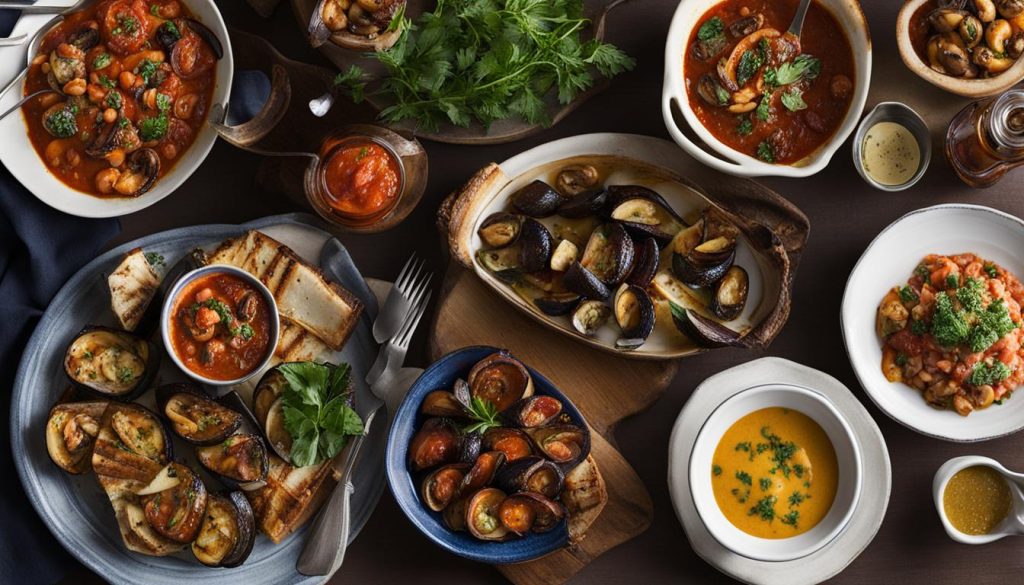
If you’re eager to broaden your scope of French gastronomic knowledge beyond Mastering the Art of French Cooking, a plethora of alternative guides are at your disposal. These cookbooks offer a more approachable version of French cuisine, with recipes that simplify yet remain delectable, catering to both fledgling and proficient domestic chefs. Culinary authors like Patricia Wells, Anne Willan, Jacques Pépin, Jean-Georges Vongerichten, and Jeremiah Tower have presented works that rejuvenate time-honored French fare with a modern twist.
These writers comprehend the yearning for brief recipes that accommodate our fast-paced lives, all the while maintaining the quintessence of French gastronomy. They employ modern cooking strategies and components, granting you the chance to discover French tastes with a novel outlook. Whether aiming to dazzle your dinner invitees or seeking to enhance your routine dining, these alternative cookbooks are brimming with creative inspiration.
Adopting New Techniques and Ingredients
While Mastering the Art of French Cooking spotlights classic French components and practices, these supplemental cookbooks often introduce novel ingredients and culinary techniques. They reflect the dynamic evolution of the cooking scene and demonstrate the adaptability of French gastronomy. From swift, straightforward weekday dinners to inventive reinterpretations of French mainstays, these guides serve as portals to delve into the varied palette of French cookery in a more welcoming manner.
Hence, if you’re prepared to advance your French cooking voyage, don’t confine yourself to a solitary volume. Venture into the vast array of alternative sources available and set forth on a luscious quest within the world of French gastronomy. Bon appétit!
The Enduring Impact of Julia Child and French Gastronomy
Julia Child’s legacy within the realm of cookery reaches well beyond her triumph with Mastering the Art of French Cooking. Her later culinary works, such as From Julia Child’s Kitchen, offer a more intimate and casual approach to cooking, welcoming readers into her personal culinary sanctuary. Through her congenial and hospitable narrative style, she steers both novice and adept home chefs through the complexities of French cookery, rendering it attainable for all.
In her culinary haven, Julia Child displayed her affinity for French cuisine and her trailblazing ethos. Her influence persists as her kitchen was thoughtfully conserved, and its exhibit can be seen at the Smithsonian National Museum of American History. This space is emblematic of her zeal and her indelible imprint on the culinary world.
In addition to Julia Child, the esteemed chef Pierre Franey also made significant contributions to French culinary heritage. Recognized for his “60-Minute Gourmet” feature in The New York Times, Franey offered immaculate and straightforward recipes, empowering home chefs to savor exquisite French-inflected meals without dedicating lengthy hours to preparation. His cookbooks, such as The Late-Franey’s Cookbook, continue to enthrall and enchant gastronomy aficionados to the present day.
Conclusion: Embracing French Gastronomy
Having been introduced to the compelling narrative of Mastering the Art of French Cooking, now is the time to immerse oneself in the exquisite artistry of French gastronomy in your own culinary space. Whether you delve into this enduring work or seek out other references, the enthralling world of French cooking invites you with its timeless allure and rich flavors.
French cuisine enables you to elevate your cooking craft and indulge in the deep-seated traditions of this esteemed gastronomy. From the luscious beef bourguignon to the fragrant bouillabaisse, each specialty bears the heritage of centuries-old French culinary art. By utilizing genuine French cooking methods and ingredients, you can replicate these iconic meals and capture the pure spirit of French gastronomy.
However, if a more user-friendly path is preferred, then contemporary works by distinguished authors provide straightforward yet still savory French recipes. These modern adaptations employ up-to-date cooking techniques and ingredients, facilitating a personalized exploration of French cooking that aligns with your taste and lifestyle.
Thus, don’t delay in launching your French culinary expedition. Discover the clandestine marvels of classic French gastronomy and relish the splendor of this enduring culinary craft. Regardless of whether you are a practiced home chef or a beginner, embracing the art of French cooking promises joy and creative inspiration for your culinary endeavors.




